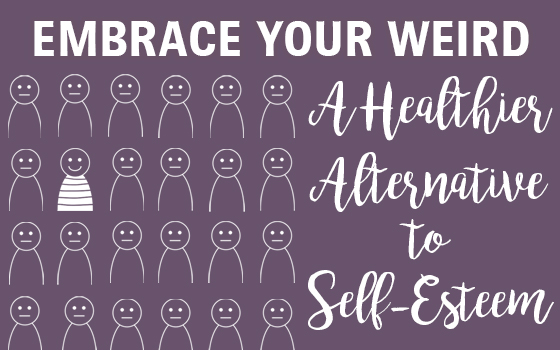Our never-ending journey for greater self-esteem
As an individual, you have probably been brought up with the idea that you need to believe in yourself to be happy. Psychology and the self-help communities have suggested that having a solid sense of self-esteem (confidence in your worth or abilities) can have great emotional benefits. In contrast, low self-esteem is thought to fuel depressive symptoms, self-criticism, low motivation and other negative symptoms.
Naturally, the internet is filled with resources on improving your self-esteem. We are all on a personal journey in an attempt to truly believe in ourselves. Personally, I have been told that self-esteem is important to work on. As an introvert, I always struggled with my esteem throughout my life, both in childhood and adulthood. For me, it felt like there was something wrong with me, I felt like I was an incomplete person because I did not have much confidence. You could say that I was on a never-ending quest journey for greater self-esteem. It seems that everyone is preoccupied with their confidence these days.
The healthier alternative to self-esteem
Despite the seemingly positive nature of high self-esteem, the question arises – is self-esteem truly what we need to be happy or is the influence of self-esteem just a hype? In this post, I will challenge the idea that self-esteem is required for you to be a happier person. I will also introduce you to a new and healthier way of relating to yourself. It will offer you a new and better way of relating to yourself. This alternative to self-esteem is called self-reassurance
The dark side of self-esteem
According to recent research published by Petrocchi, Dentale, and Gilbert (2018), self-esteem may do more harm than good. In fact, it has been previously shown that high self-esteem is associated with narcissism. You can also become too preoccupied with confidence protection especially during an ego threat experience (threat to your self-image/esteem). It is definitely not beneficial to always be on guard!
Now you may ask “so what is the alternative to self-esteem then?”. Have you ever heard of self-reassurance? No? Well. let me explain:
What is self-reassurance?
Self-reassurance could be described as a healthier alternative to self-esteem. It is based on your ability to remind yourself of your competencies when you are faced with setbacks and failures. Self-reassurance is all about being supportive of yourself as an individual.
What are the benefits of self-reassurance?
Petrocchi, Dentale and Gilbert (2018) have found that self-reassurance is more effective than self-esteem in reducing self-critical thoughts. Self-reassurance also removed the link between self-critical thoughts and depressive symptoms. In simple terms, this means that having self-reassurance makes you far more resilient. It can protect you against the negative effects of self-criticism on your mental health.
The differences between self-reassurance and self-esteem
While the definition of self-esteem appears quite similar, self-esteem is concerned more with the focus on self and whether the person feels like a success or a failure. This means that facing failures in life can even damage your sense of self-esteem.
Self-reassurance can help you to live with acceptance, as it removes the necessity to compete with others and rely on self-other comparisons (due to our human nature, we all tend to compare ourselves with others to prove our worth and abilities).
As a result, when you begin to focus on your self-reassurance and not self-esteem, your thoughts will become less concerned about whether or not you are “a failure”, and more on the fact that you are “fine as you are”. Self-reassurance teaches you that you don’t have to prove yourself to anyone. You will feel good when you learn to be supportive and self-compassionate, even during your lowest moments.
What should you do now?
It’s time to change your mindset. You don’t need to dedicate all your energy on improving your self-esteem. Try to focus on harnessing self-reassurance. Accept your personal characteristics and try to understand your flaws. Embrace yourself for who you truly are – the weird parts, the dark parts, embrace the whole of YOU. The reign of self-esteem is ending; we are in a new era of self-acceptance. So stay true to yourself, my friend.
If you are curious about the scale used to measure self-reassurance you can find it here.

